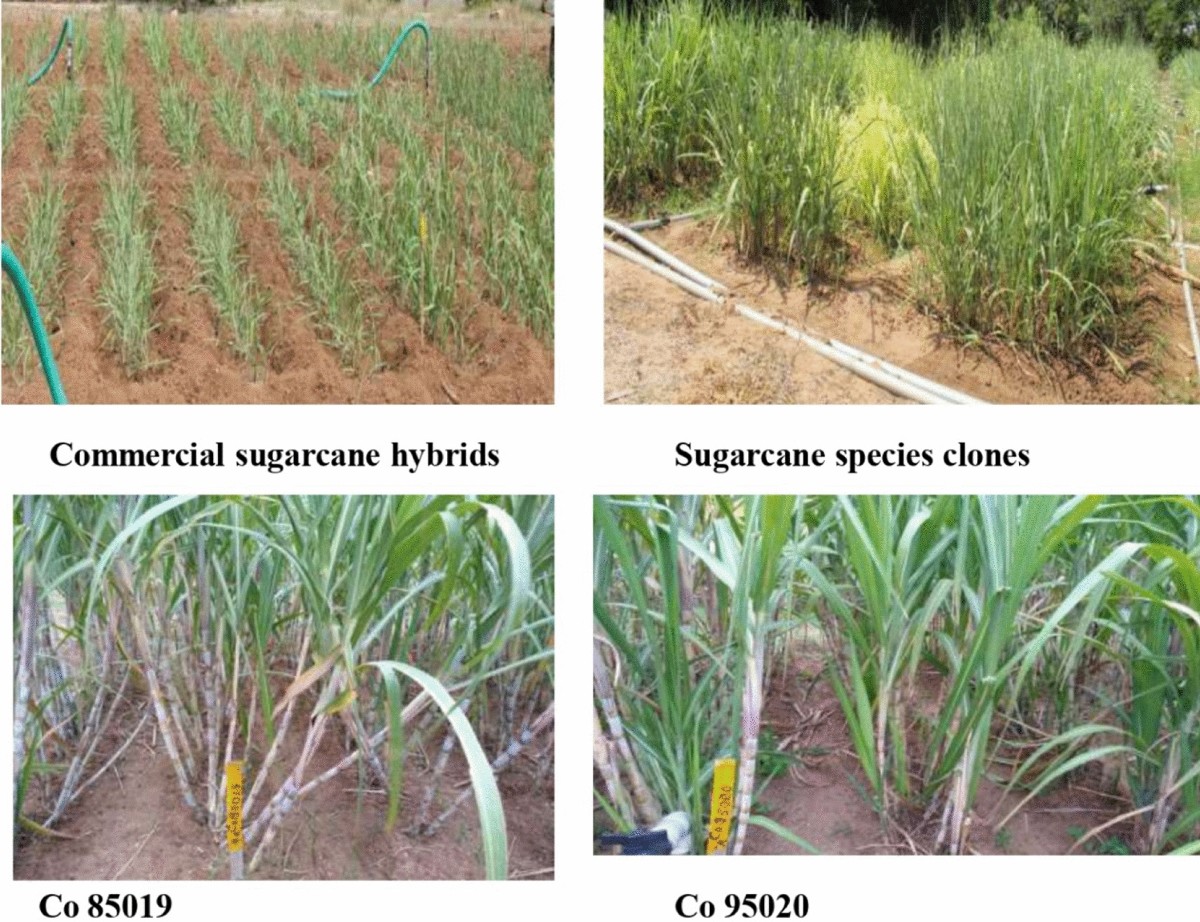Eco-Friendly Gift Ideas Featuring Products From Sugarcane
Eco-Friendly Gift Ideas Featuring Products From Sugarcane
Blog Article
Discover the Cutting-edge Advantages of Products From Sugarcane for Sustainable Living
Sugarcane has become a pivotal source in the pursuit for lasting living. Its varied applications cover naturally degradable product packaging, renewable resource, and much healthier food alternatives. As industries seek green options, sugarcane's versatility provides encouraging services. The true capacity of sugarcane expands beyond its existing uses. Exploring its cutting-edge benefits could expose new pathways towards a much more sustainable future. What various other opportunities might this impressive plant hold?

The Rise of Sugarcane as a Lasting Source
As global understanding of ecological issues expands, sugarcane has become a popular sustainable source. This functional plant uses a selection of benefits that add to green methods. Sugarcane is a renewable energy, efficient in prospering in varied environments while absorbing carbon dioxide, consequently alleviating greenhouse gas emissions. Its rapid development cycle enables regular harvesting, causing a constant supply of raw material.Additionally, sugarcane cultivation usually requires much less water compared to various other crops, making it an efficient choice in water-scarce regions. The byproducts of sugarcane, such as bagasse and molasses, can be repurposed for different applications, decreasing waste and promoting circular economic climate principles. Developments in agricultural methods have actually led to even more sustainable farming approaches, even more boosting sugarcane's ecological account. As customers progressively seek sustainable choices, sugarcane stands apart as a sensible alternative for those dedicated to minimizing their ecological footprint.
Naturally Degradable Product Packaging Solutions
Exactly how can naturally degradable product packaging solutions change the method customers approach sustainability? By utilizing sugarcane-based products, these ingenious remedies supply a compelling option to standard plastics. Eco-friendly product packaging made from sugarcane decomposes normally, considerably lowering garbage dump waste and greenhouse gas exhausts. As consumers end up being increasingly knowledgeable about their ecological effect, the demand for sustainable packaging remains to rise.These sugarcane-derived products not just offer functional purposes however likewise line up with eco-conscious customer worths. They give a tangible means for businesses and people to add to a circular economy, advertising resource performance and decreasing ecological impacts. Additionally, as sectors adopt eco-friendly options, they foster a culture of sustainability that resonates with an expanding market looking for accountable choices.In essence, eco-friendly packaging remedies from sugarcane represent a crucial step ahead in lasting practices, equipping customers to make eco-friendly decisions without sacrificing comfort or top quality.
Renewable Resource Generation From Sugarcane
A substantial portion of sustainable power generation can be stemmed from sugarcane, showcasing its adaptability past conventional agricultural uses. Sugarcane biomass, consisting of bagasse and leaves, is a potent resource for bioenergy manufacturing. This biomass can be exchanged biofuels such as ethanol, which serves as a cleaner option to nonrenewable fuel sources. Furthermore, the burning of sugarcane byproducts produces heavy steam and electrical energy, offering an energy resource for sugar mills and close-by communities.The growing of sugarcane likewise contributes to carbon sequestration, as the plants take in carbon dioxide throughout their development cycle. By making use of sugarcane for energy, waste is minimized, and sustainable methods are motivated. This eco-friendly energy technique not only supports energy requirements however additionally advertises rural advancement, creating jobs in bioenergy sectors. In general, sugarcane stands apart as a principal in the change to sustainable power solutions, aligning with global initiatives to lower carbon footprints.
%20for%20sugar%20mills%20Manufacturer%20Netsol%20Water.jpg)
Eco-Friendly Textiles and Fabrics
Environment-friendly textiles and materials stemmed from sugarcane offer an encouraging option to standard materials. These eco-friendly choices not only decrease environmental influence however also use longevity and performance equivalent to conventional materials. Lasting manufacturing processes better enhance their appeal, making them an integral component of a lasting way of living.
Biodegradable Material Options
Why is the change towards eco-friendly textile choices vital for lasting living? The enhancing awareness of ecological degradation has prompted a search for choices to traditional fabrics, which frequently add to pollution and waste. Naturally degradable materials, stemmed from sustainable resources such as sugarcane, use an encouraging option. These materials break down naturally, minimizing landfill build-up and lessening ecological impact. In addition, they can assist reduced carbon footprints and reliance on nonrenewable fuel sources. As consumers end up being a lot more eco-conscious, the need for sustainable fabrics expands, motivating manufacturers to innovate and spend in naturally degradable options. This change not only supports lasting methods yet also fosters a circular economy, leading the way for an extra responsible strategy to style and textile production.
Durability and Performance
Resilience and performance are important variables when reviewing eco-friendly fabrics and textiles. Sugarcane-derived materials demonstrate remarkable stamina and durability, making them ideal for various applications. These fabrics usually show premium moisture-wicking homes, which enhance convenience in daily wear. Furthermore, their all-natural fibers add to breathability, guaranteeing that garments remain wearable and fresh also sought after conditions. The efficiency of sugarcane-based textiles encompasses their resistance to tear and use, allowing items to preserve their stability in time. These eco-friendly textiles can be treated to improve UV defense and discolor resistance, meeting the useful demands of consumers without jeopardizing sustainability. Ultimately, sugarcane textiles provide a harmonious equilibrium of longevity and performance, attracting ecologically conscious people.
Sustainable Production Processes
The remarkable resilience and efficiency of sugarcane-derived fabrics are complemented by sustainable production processes that focus on ecological duty. These processes make use of eco-friendly resources, decreasing dependence on fossil fuels and lowering carbon footprints. By taking advantage of the byproducts of sugarcane cultivation, makers can produce environmentally friendly materials while promoting waste reduction. Advanced techniques, such as water-efficient dyeing and eco-friendly therapies, even more improve the sustainability of these textiles. In addition, making use of safe chemicals guarantees that the production procedure does not damage ecosystems or human wellness. This commitment to sustainability not just interest ecologically mindful consumers but additionally sustains neighborhood economic situations by advertising lasting agricultural methods. Overall, sugarcane-derived fabrics stand for a substantial step towards a greener future in the fashion business.
Sugarcane-Based Biofuels and Their Effect

Sugarcane-based biofuels have become a substantial alternative energy resource, providing a sustainable option to the world's expanding energy demands. These biofuels, originated from the fermentation of sugarcane juice or molasses, provide an even more lasting option compared to nonrenewable fuel sources. Their manufacturing process generates reduced greenhouse gas discharges, adding to climate modification reduction efforts.Additionally, sugarcane biofuels can improve energy security by diversifying power resources and reducing dependancy on imported oil. The cultivation of sugarcane likewise promotes rural advancement, creating work and boosting regional economies.However, concerns relating to land usage and food competition continue, as raised biofuel manufacturing may affect food supply chains. Lasting farming methods are site here essential to stabilizing these ensuring and contending interests that biofuel manufacturing does not threaten food safety. Generally, sugarcane-based biofuels represent a promising avenue for a greener power future, provided that their ecological and social implications are meticulously handled.
Healthier Alternatives: Sugarcane in Food Products
While several customers look for healthier choices in their diet regimens, sugarcane products use a nutritious choice to fine-tuned sugars and artificial sweeteners. Derived from the natural extraction of sugarcane juice, these products preserve essential nutrients, consisting of minerals and vitamins, that are usually lost in refined sugars. Sugarcane includes anti-oxidants and nutritional fiber, adding to general health and wellness.Many health-conscious individuals are transforming to sugarcane syrup and jaggery, which offer a reduced glycemic index contrasted to traditional sugars, making them appropriate for those handling blood sugar levels. Furthermore, sugarcane-derived sweeteners can enhance the taste of numerous recipes without the damaging impacts linked with man-made additives.This shift in the direction of natural sweetening agents not just promotes far better nutritional choices but additionally lines up with lasting living methods, as sugarcane is a renewable resource. As a result, sugarcane items are arising as desirable choices in the domain of food products.
The Future of Sugarcane in Sustainable Innovations
The future of sugarcane is positioned to include cutting-edge applications that extend beyond traditional usages. Its potential as a resource for eco-friendly packaging remedies and sustainable power sources highlights its function in sustainable techniques. Exploring these innovations might substantially influence environmental conservation and resource monitoring.
Naturally Degradable Product Packaging Solutions
An increasing variety of firms are transforming to biodegradable product packaging options derived from sugarcane as an appealing choice to conventional plastics. These cutting-edge products, typically made from sugarcane fibers and bioplastics, decompose normally, decreasing the lasting ecological impact related to standard plastic waste. By utilizing renewable energies, sugarcane-based product packaging adds to a much more sustainable production cycle, aligning with international efforts to combat contamination and environment adjustment. Additionally, these options often maintain the toughness and capability required for different applications, from food containers to delivery products. As customer need for environmentally friendly alternatives expands, organizations taking on sugarcane product packaging not only boost their brand picture however likewise play an essential function in cultivating a round economic climate, paving the way for a greener future.
Renewable Resource Resources
Naturally degradable product packaging remedies are simply one element of the more comprehensive possibility of sugarcane in advertising sustainability. One more considerable application hinges on renewable power sources. Sugarcane is a functional plant that can be used to generate biofuels, such as ethanol, which functions as a cleaner choice to fossil fuels. The fermentation process of sugarcane juice returns ethanol that can power cars and create electrical power. Furthermore, the results of sugarcane handling, like bagasse, can be utilized to create biomass energy, offering a lasting and effective method to harness power. This twin role as both a resource of biofuel and biomass highlights sugarcane's possibility in reducing carbon exhausts and sustaining a shift to a more sustainable power landscape in the future.
Often Asked Questions
Exactly How Is Sugarcane Harvested Sustainably?
Sugarcane harvesting can be sustainable through strategies like hands-on cutting, which minimizes dirt disruption, and utilizing equipment that decreases gas usage (Products From Sugarcane). Plant rotation and integrated bug management better improve ecological wellness and advertise long-term soil fertility
What Are the Environmental Effects of Sugarcane Farming?

Can Sugarcane Products Be Recycled?
The inquiry of whether sugarcane items can be recycled reveals a favorable expectation. Several sugarcane-derived materials, such as bioplastics and product packaging, are created for recyclability, adding to a much more sustainable waste monitoring approach within ecological considerations.
Are There Any Type Of Disadvantages to Making Use Of Sugarcane-Based Products?
The downsides of making use of sugarcane-based items consist of possible land use competitors with food plants, challenges in massive production, and issues regarding the environmental impact of monoculture farming practices, which can diminish biodiversity and dirt wellness.
Just How Does Sugarcane Growing Affect Local Communities?
Sugarcane cultivation impacts neighborhood areas by giving work possibilities and increasing local economies. However, it can additionally bring about land conflicts and ecological issues, affecting farming methods and community health, necessitating a balanced approach to growth. Innovations in farming techniques have actually led to even more sustainable farming techniques, even more enhancing sugarcane's environmental account. you can look here Furthermore, the burning of sugarcane byproducts generates steam and electrical energy, offering an energy source for sugar mills and nearby communities.The farming of sugarcane additionally adds to carbon sequestration, as the plants absorb carbon dioxide during their development cycle. By making use of sugarcane for power, waste is lessened, and lasting techniques are motivated - Products From Sugarcane. Sugarcane contains antioxidants and nutritional fiber, adding to general health and wellness.Many health-conscious individuals are transforming to sugarcane syrup and jaggery, which provide a lower glycemic index contrasted to traditional sugars, making them ideal for those managing blood sugar degrees. In addition, the byproducts of sugarcane handling, like bagasse, can be made use of to read here create biomass power, supplying a sustainable and reliable method to harness power
Report this page